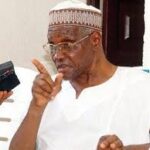The hospitality industry in the northern part of the country is one of the most hit by the incessant communal crises that afflicted the area leading to loss of business activities in the last many years. The hotels are an integral part of this industry and the downturn has clearly been evident there. Over the last thirty or so years, many iconic hotels in these parts have lost their lustre. Hamdala and Durbar Hotels in Kaduna, Sokoto Hotel, Daula Hotel in Kano, Hill Station Hotel in Jos and Lake Chad Hotel in Maiduguri. Lake Chad, Daula and Sokoto Hotels were opened in the 1970s, Hamdala in 1964 and Hill Station in 1938. In their peak during those halcyon days of the 1970s and 80s, these hotels were the 5-star celebrities of the time.
They were the hotels to crow about when you lodge there or happen to hold a meeting or attend a wedding party in their premises. These are hotels that each boasted of over 100 well-appointed rooms and grand facilities for holding large gatherings of conferences or weddings. They had large acreages with beautiful gardens complete with Olympian swimming pools. Hotels like Hamdala with its ten storey heights and Hill Station that sat atop a hill that had a grand view of Jos were city landmarks and were meeting places and lodges of the glitterati of the government and business circle. Perhaps nobody now remembers that the Queen of England was once hosted in Hill Station Hotel Jos.
Those of us who lived in Maiduguri in that period know the pride of place Lake Chad Hotel occupied in the cultural architecture of the town. Sitting resplendently on top of a sand hill, Lake Chad Hotel was only a short drive from the centre of the town and a walking distance to the State Secretariat, most of the banks, the Monday Market and the GRA. It hosted most business and government activities and was a cultural joint of the town where all and sundry hobnobbed. Sadly, all these hotels, these landmarks in the various towns, have been left to degenerate and flounder. Their fortunes were victims of the incessant communal crises that went on for so many years now. But there is more to that cause of failure. Many also accuse those appointed to oversee their affairs of not doing the needful to shore them out of the doldrums. Of course a common thread in the narrative is the fact that they were all managed and allegedly mismanaged by Arewa Hotels, a subsidiary of the Northern Nigerian Development Corporation (NNDC).
Kongo Conference Hotel belonged to that bountiful era. Also managed by Arewa Hotels, it had the misfortune to follow a similar trajectory of boost, boom and bang with those grand hotels. The hotel came into existence in December 1980, though those of us who were students in the Institute of Administration, Kongo Campus in the early 1970s would have a recollection of a Kongo Conference Centre. Situated near the clinic at the back of Students Hostel 3, it served upscale guests for conferences and residential purposes. Probably, it was the concept of that conference centre, a precursor of sorts, that germinated into the hotel long after we left the campus. The new hotel situated in between the students’ hostels and the staff quarters had the gate opening out to the old Zaria-Jos road. The hotel was set amidst a serene environment within a lush vegetation of trees and flower plants. It had 87 rooms with a conference hall that had a sitting capacity of 1500 guests plus several committee and secretarial rooms. The hotel prospered, cashing in on the large number of visitors that frequented this university town, to visit or and attend perennial conferences.
In the initial years the hotel was very much sought after. This can be gleaned from the statistics that showed that in 1982 alone the hotel hosted 58 conferences, seminars and workshops, which went up to 69 per annum in 1986. Similarly, the hotel hosted an estimated total of 18,000 residential visitors in 1982 and up to 19,800 such visitors in 1986. I could even have been part of these figures because I visited Zaria a number of times within that period and whenever I did the preferred place of stay was the Kongo Conference Hotel. Regrettably, like all those grand hotels that were run aground, Kongo Conference Hotel fell into the rubbles and it remained there for a very long time. It was only in the last few years that a forward looking administration in ABU that owned the Hotel decided to make a large investment to upgrade and revamp it.
I learnt about the turnaround happening to the Kongo Conference Hotel through a friend, Abdullahi Idris, who has been consulted by ABU after the upgrade to take it to the next level. Abdullahi is a consummate tourism professional whom I knew way back in Maiduguri in the early 1980s where he was an NYSC attache at the Lake Chad Hotel. He later taught at Ramat Polytechnic before turning up at Zaria Hotels as General Manager. At different times he served as a Director in the Nigerian Tourism Development Corporation (NTDC), the National Institute for Hotel and Tourism Studies (NIHOTOUR) and the Abuja Tourism Development and is now a Senior Lecturer at Federal Polytechnic, Nasarawa.
I couldn’t resist taking up the invitation to spend a day at the Kongo Conference Hotel looking forward to luxuriating in its offerings. I drove from Abuja that fine Tuesday morning, last week, with a mind that was filled with expectations. It was a normal February morning, a strong harmattan breeze was about, with a white, dusty, haze hovering. The road to Kaduna was as usual bustling with vehicles. Driving towards Kaduna especially after the 40th kilometre post could be trying as that portion of the road needs urgent patching before the main ongoing works catches up with it. However, after exiting Kaduna and though the road construction work becomes more intensive, there seemed to be more coordination between the contractor and the road marshals. Most of the journey towards Zaria was on one lane, yet it was more organized and seamless. In due course, I was approaching the Wusasa Bridge where I turned right towards the ancient gate of Zaria city. I then googled my way for the rest of the drive to the hotel.
The Kongo Conference Hotel I found was a different picture of what many had been fed me on over the years. Shambolic, dilapidated, insecure, were the words used to describe the hotel before. But from the tight security I found at the gate, I supposed that the bad days are over for the hotel now. I was immediately taken on a grand tour of the edifice. The hotel has 100 upgraded residential rooms and many conference, event centres and sporting facilities. Besides the residential rooms, the hotel has got a number of detached VIP accommodations with 4 or 5 rooms, complete with a kitchen, dining area, sitting rooms and a study. One intriguing VIP accommodation is a house once occupied by late Laszlo Egler, a Hungarian Professor of Medicinal Micro-Biology, who served ABU from 1962-2000. He was said to have travelled all over West Africa and bought plants of all specie, which he raised around the house. It would be a fascinating accommodation to lodge in even if it just for a few days.
It was dinner time and we headed to the 120-cover restaurant. Over the fine cuisine, I discussed with my host at length the challenges facing the hospitality industry in general, particularly in the North where insecurity and problems associated with lack of good roads and power, has bedevilled the sector. But that’s a story for another day. Keep a date with this page.
 Join Daily Trust WhatsApp Community For Quick Access To News and Happenings Around You.
Join Daily Trust WhatsApp Community For Quick Access To News and Happenings Around You.


